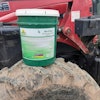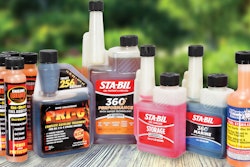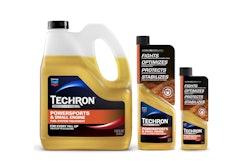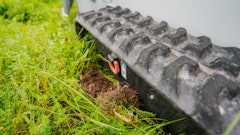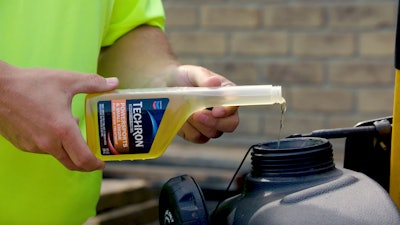
When it comes to getting the job done, you always need reliable people and reliable equipment. Without both, where would we be?
While members of your team may come and go for any number of reasons within or beyond your control, when it comes to the longevity and staying power of your equipment, one of the best things you can do to increase its reliability is engine upkeep. Regular maintenance is key to the confidence you want to feel when you start up a machine to accomplish a job.
We’ve all been there before. You go to use a piece of equipment that’s not part of your regular rotation or that’s been sitting in storage for a bit and feel the slightest twinge of doubt that it won’t start. Why does that feeling creep up?
Let’s examine the root of the problem, which, often times, is the result of bad gasoline.
Over 98% of fuel today contains up to 10% ethanol, which can be problematic for your small engines. The problem? Ethanol is hygroscopic, meaning it pulls moisture from the air. When that moisture is in your fuel it can wreak havoc on your engine, causing rust, corrosion and a whole host of other problems such as a rough idle, no start or other more severe performance issues.
The good news here? Most of this is preventable. One of the easiest, most cost-effective ways to prevent against ethanol’s negative effects is by regularly using a fuel additive. Think of it this way. It’s a lot cheaper, and less painful, to brush your teeth every day and to go to the dentist every six months for a teeth cleaning than it is to pay for harmful cavities in long run. You should treat your gasoline and your equipment with that same mindset.
And for those who can’t bear to think about parting with their tried and true equipment that’s lasted them years, instead of turning it in for shiny new and expensive machines - all the more reason to keep it going as long as possible by regularly using a high quality fuel additive.
So how do fuel additives work? Fuel additives are not only designed to prevent the formation of corrosion and rust, but they’re also designed to clean your crucial fuel system components, keep them clean for the long run, and stabilize your fuel during periods of infrequent use, keeping your fuel fresh so your engine starts up powerfully each time.
Not only does the ethanol in the gas create the potential for engine corrosion, but unstable species in that same fuel, in combination with heat, pressure and exposure to air can eventually lead to the production of deposits, which turn into gum, varnish, and sludge inside your fuel system. This slows down the flow of fuel, causing your engine to work harder, while delivering subpar results.
That’s where fuel additives come in for the win again. They clean up those harmful deposits, removing them from the metal components inside your engine to be burned in the combustion chamber, subsequently restoring the regular flow of your fuel so your engine can function the way it was originally designed. A good way to think of it is to compare your fuel system to your own cardiovascular system. If you eat lower quality foods (aka bad fuel), over time, plaque builds up inside your arteries (your fuel system), causing your heart (engine) to work harder than necessary to keep you going. An engine that isn’t plugged up with harmful carbon deposits can perform a lot better than one that is, getting you more power when you need it.
But, why do you need to use a fuel additive if you have a brand-new piece of equipment? The simple answer – you should be protecting your investment. Fuel additives are not only designed to clean up your fuel system, but they’re also designed to keep them clean when used continuously, preventing future fuel flow problems (and potential engine start up issues or costly repairs) from developing.
Looking at the science of it all - the detergents (cleaning agents) in fuel additives are made up of a number of microscopic molecules, each with a polar head and a long chain tail, like a tadpole. When deposits are present, the molecule’s head attaches itself to the harmful deposits. Fuel flowing over the tail pulls the molecule and deposit off of the metal surface and carries them away to the combustion chamber to be burned.
Once deposits have been removed, the polar head actually attaches itself to the metal components inside your fuel system, creating a protective coating on the metal so future deposits can’t attach.
Some fuel additives, like Techron Powersports & Small Engine Fuel System Treatment from Chevron, provide all these benefits with continuous use to protect your engine.
Even if you’re using certain equipment on a daily or weekly basis, using a quality fuel additive like Techron Powersports & Small Engine can give you peace of mind because it provides multiple benefits in a single bottle. Not only does it clean up any deposits that have built up over time, but it also keeps that fuel system clean long term, provides protection against corrosion, increases your fuel economy, and stabilizes fuel for up to two years. Continuous use can save you money in the long run by helping to prevent costly repairs, often in the form of a rebuilt carburetor.
At less than $10 a bottle for the 10 oz size, Techron Powersports and Small Engine is easy on your wallet and even easier to use – just pour it into your equipment’s gas tank and go. One 10 oz bottle treats 40 gallons of gasoline, so a little goes a long way. And remember, it’s designed to be used with every fill up for continuous protection, and can be used in anything with a small gas engine, whether that’s your lawnmower, leaf blower, trimmer, etc. It can even be used in any smaller vehicles on the job, like an ATV or UTV.
So next time you’re filling up your gas-powered equipment or gas can, don’t forget to include a quality fuel additive to your maintenance routine. With their cleaning, protecting and fuel stabilizing capabilities, fuel additives will give you the peace of mind to know your equipment will continue to be reliable, all while saving you valuable time and money.

